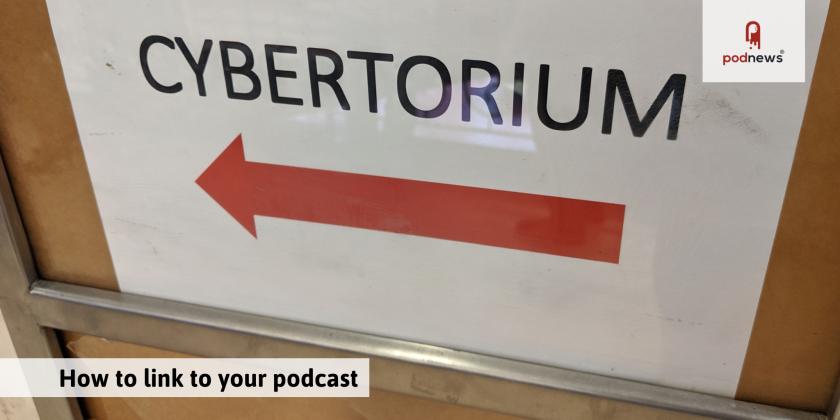
How to link to your podcast

This article is at least a year old
If you want to link to your podcast from social media, posters, business cards, your email footer or anything else… what’s the best way?
Here’s what not to do. Don’t just link to Apple Podcasts. 63% of the world’s smartphones run Android, and Android phones don’t run Apple Podcasts. So, a link to Apple Podcasts automatically cuts off two-thirds of smartphone users.
So, here are the options:
Use a “magic link”
Services like Podfollow or Plink produce a neat and simple link that automatically links to the right place. An iPhone user will see their Apple Podcasts app open at the right place; an Android user will get Google Podcasts opening at your show; and a user on a browser will get a page with more links.
- If you want one of these for your own website, search for your podcast in Podnews and then choose “link to your podcast” in the Tools section for the “automatic listen link”. You can download the code and stick it on your own website if you like.
Use a “magic link” with a QR code
Doing advertising in the press, at a conference, or on a business card? A QR code linked to a “magic link” like this will help people subscribe - all they need to do is to use their camera to point to the QR code and just tap the code on-screen. (Try it!)
They’re especially good for conferences, where you don’t really want to give another piece of paper away which’ll only get lost.
Downsides with “magic links” are that they are a little too simple for some. If I use Pocket Casts rather than Apple Podcasts, I can’t use a magic link - and it might annoy or confuse me if it opens in an app that I don’t use.
Link to a page with that gives options
The page on Podnews for your podcast, like this for The Daily, contains three big obvious buttons for Apple Podcasts, Google Podcasts and Spotify; a QR code; a player; and then more buttons further down for other apps. We’ve built it carefully to help new listeners find your podcast. Search for your podcast in Podnews and find yours.
If you add “/no” to the end of the URL, you can get a copy of the page without any Podnews branding or technical information (like this one).
Downsides with linking to this are that you don’t have much control over what’s on this page, and you don’t know if Podnews is going to go out of business tomorrow. We’re not, of course.
Link to your own website
Todd Cochrane from Blubrry regularly tells podcasters to build your own show, control your IP at all times, and own your brand and your own dot-com. And this is best plan.
If you run your own website for your podcast, you should link to that - every single time. You, alone, control what is on your website: from email newsletters to more details about your show. You can do a much better job of converting someone to be a listener than a directory page on Apple or a podcast host.
On your website should be big buttons to link to the three biggest players: Apple Podcasts, Google Podcasts and Spotify. Apple and Google players are preinstalled on phones, and Spotify is a recognised media player. That’s probably all you need, along with a decent embedded player (20% of people listen on websites).
You can get the code for the official Apple/Google/Spotify buttons, all linked to your podcast, if you search for your podcast in Podnews and then choose “link to your podcast” in the Tools section.
We’d suggest that links to other podcast apps aren’t needed. First, if you use Overcast or Pocket Casts, you already know how to search those apps to find podcasts, so it doesn’t really help or save much time to have a button. Secondly, a list of twenty podcast apps is really confusing to someone who just wants to listen. (Imagine if you pop into a supermarket for some strawberry jam: if there’s a choice of three, it’s easy to work out which to buy: but a choice of 40 might be a little bewildering). And thirdly, you might want to point as many people to Apple, Google and Spotify (where most of the listening happens anyway) to affect your chart position there, rather than anywhere else.
If you don’t have a decent website, Podsites, a service from RadioPublic, appears to be flexible and works with any podcast host.
Got other tips? We’d love to hear from you in the comments.
 | James Cridland is the Editor of Podnews, a keynote speaker and consultant. He wrote his first podcast RSS feed in January 2005; and also launched the first live radio streaming app for mobile phones in the same year. He's worked in the audio industry since 1989. |














































































